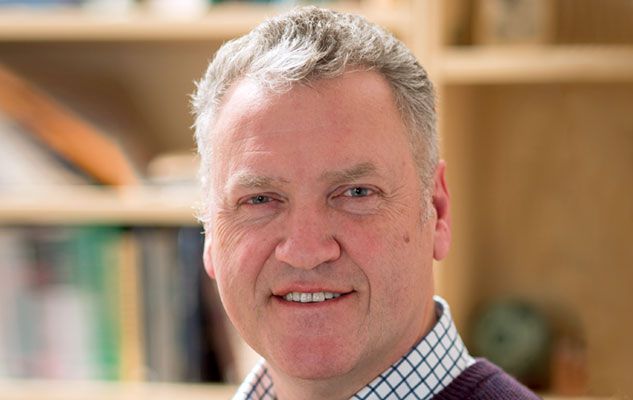Think you could spot a liar? Don't look for the obvious signs...
Professor Tom Ormerod of the University of Sussex talks about new techniques for analysing behaviour and language to improve the detection of threat, vulnerability, and deception as part of the British Science Festival.

While we may believe we know the behaviours that betray the truth dodgers, from acting nervously to avoiding eye contact, it seems that it’s the more subtle changes in their normal behaviour that really give their game away.
In fact, looking for specific signs – currently the standard practice in security training – often prevents us using our natural expertise in behaviour analysis.
At this year’s British Science Festival in Brighton, University of Sussex professor of psychology Tom Ormerod (pictured above) will give audiences the opportunity to develop the skills for detecting deception.
“People think there are signs that reliably reveal if someone is lying or not,” he says. “But all the scientific studies suggest that this simply isn’t true. The problem is that we don’t always have conscious access to our decision-making processes, so we create our own accounts of them and that leads us to make generalisations about what we think people do when lying.”
Although we may not be great at spotting fraudsters among those we don’t know, it’s a different story when it comes to our loved ones, he says.
“We know their range of behaviour. We know what they’re like when they’re not lying, so we can see behaviour change when they are lying.”
In response to his research, Professor Ormerod and his colleagues have developed a three-minute interview technique, Control Cognitive Engagement (CCE), to train those whose job it is to spot fraudsters.
It can replace the current technique widely used by security services and airlines, which is based on identifying “suspicious behaviour” and which, says Professor Ormerod, has been proved by numerous studies to be ineffective and counterproductive.
“There’s a phenomenon called verbal overshadowing – if you make people verbalise something they have been doing for years and years automatically, such as walking upstairs, they get worse because they focus on the little bits of it rather than the whole execution.
“So if you train people to look out for suspicious signs, they will only look for those and miss the bigger picture.”
Encouraging security services and airlines to take up his CCE technique is now the challenge. In fact, the system can be adapted for all kinds of applications, from monitoring offenders on licence in the community, to identifying victims of human trafficking.
“It’s estimated that 70,000 people are subjected to conditions of human slavery and trafficking in the UK, and that problem is made much worse because victims don’t want to be found,” he says.
“We have created a variant of CCE that allows our interviews to take place informally, in a covert way, so that the victim isn’t aware their vulnerability is being assessed.”
Professor Ormerod’s interest in fraud detection began when he carried out research for an insurance company. This led to him working with intelligence agencies in preparation for the 2012 UK Olympics, when safety and security at sporting events became a key focus of the government.
The insight he gained has made him critical of the ways in which governments attempt to thwart terrorist attacks by using systems that, he says, can are either ineffective or can actually exacerbate the problems.
“Ninety-nine per cent of security we see around us is completely ineffective,” he says. “It gives us a false sense of security. For example, selective passenger profiling – in which certain types of passengers are pulled aside for questioning – can lead to feelings of unfair and vulnerability. And anyone who is made vulnerable is ripe for indoctrination.”
However, he also believes that security threats are overplayed by governments because it suits their agendas. “The risk of dying at the hands of a terrorist in the west are miniscule. I am much more worried about bowel cancer.”
As part of this year’s British Science Festival, psychologist Professor Tom Ormerod will show how new techniques for analysing behaviour and language are challenging prejudices and improving detection of threat, vulnerability, and deception. His event, called Detecting Deception, takes place at the Asa Briggs Lecture Theatre, University of Sussex, 1.30pm-2.30pm on Tuesday 5 September.